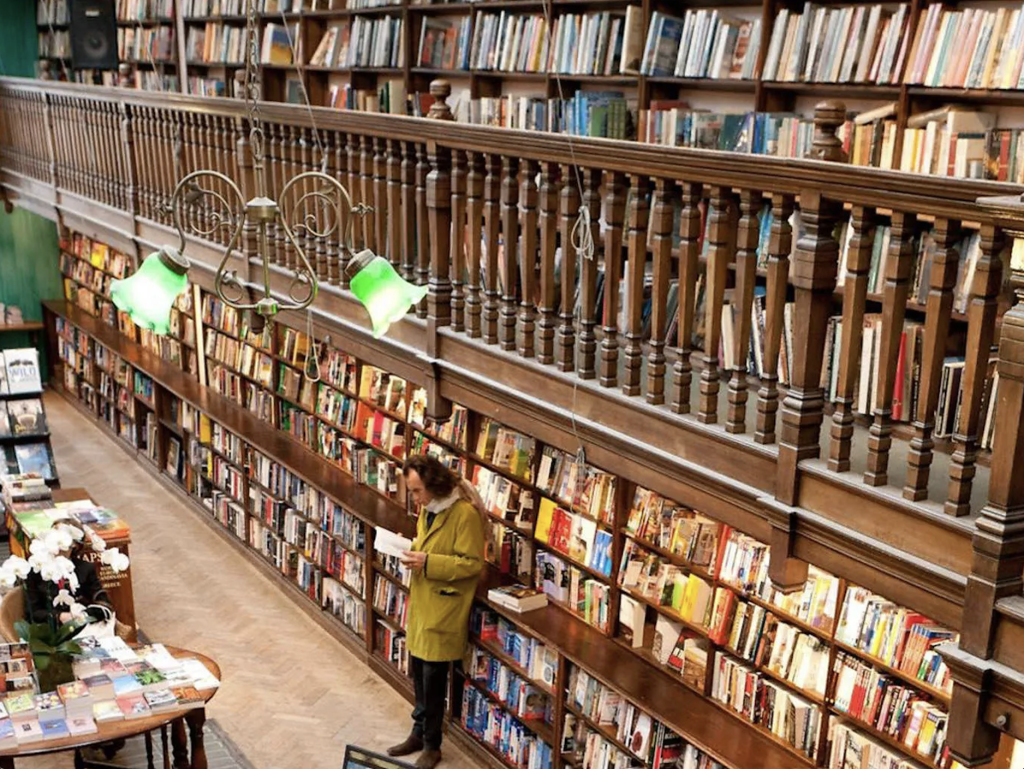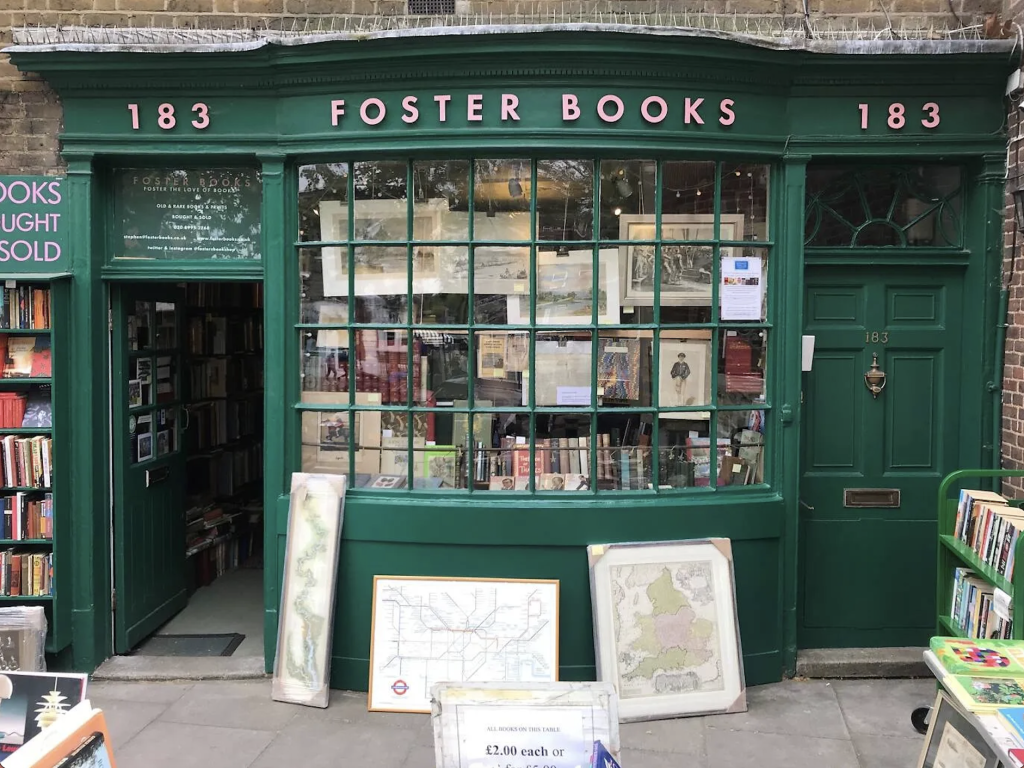This week, I started the new group project “future of work”, the project engages us in envisioning the future of work, emphasizing identity, agency, and value creation within collaborative systems. By attending the reading group on Tuesday and group discuss on Wednesday, I gained a comprehensive understanding about the importance of reflective thinking and our project brief.
Thus, after doing some secondary and primary research on Thursday and Friday, I identified my area of interest in bookshops. The decision to focus my investigation on bookshops in London stemmed from a personal affinity for literature and a curiosity about the challenges faced by those working in this industry.
During the weekend, I decided to carry out a case study of bookshops in London by visiting several bookshops and conducting interviews with their staffs, in order to gain an in-depth understanding of their working environments and the problems that they face. My initial visits to Daunt Books Marylebone and Foster Books, iconic establishments in the realm of independent book selling, provided valuable insights into the realities of their working environments.


Conducting interviews with bookstore staff uncovered a myriad of issues plaguing their day-to-day operations. From limited space utilization and confusing shelves to the absence of private workspaces and outdated inventory management systems, the challenges were multifaceted and often intertwined. Further research also suggested that organising workers in the book industry became much harder than before as the growing trend on online purchase and COVID-19 (Davidson, 2020; Kircher, 2021). It became evident that these issues not only hindered operational efficiency but also impacted the overall experience for both employees and bookshop owners alike.
As I reflect on the findings from these interviews, I am struck by the potential for innovation and improvement within the bookshop industry. The identified problems present opportunities for creative solutions that can enhance productivity, streamline processes, and enrich the workplace environment. Moreover, addressing these challenges aligns with the broader objectives of the “Future of Work” project, which seeks to foster collaborative systems where individuals have the agency to shape their professional identities and create value in meaningful ways.
Whether through the implementation of modern technological solutions, the redesign of physical spaces, or creating a community for bookshops, there is ample room for innovation and progress. By leveraging the insights gained from this initial exploration, I am able to share with my group members to find the possibility of bookshops as our case study to develop our “future work scenario”.
In conclusion, this journey thus far has been illuminating, igniting a sense of purpose and possibility as we navigate the complexities of the evolving work landscape. As I continue to engage with the “Future of Work” project, I am reminded of the transformative power of collaboration, innovation, and empathy in shaping the contours of tomorrow’s workplaces.
Reference:
Davidson, L. (2020) Why organizing workers in the book industry is so damn hard, Jacobin. Available at: https://jacobin.com/2020/08/book-industry-union-organizing (Accessed: 18 February 2024).
Kircher, M.M. (2021) How the Strand lost its workers, Vulture. Available at: https://www.vulture.com/article/the-strand-bookstore-union-protest.html (Accessed: 18 February 2024).